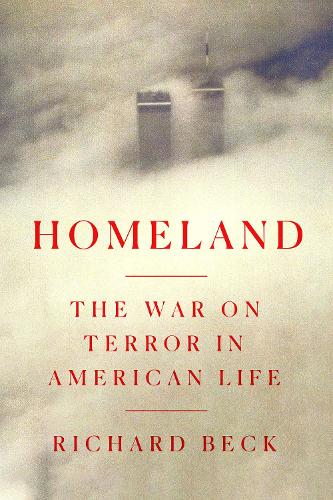
Homeland: The War on Terror in American Life
(Hardback)
Available Formats
Publishing Details
Homeland: The War on Terror in American Life
By (Author) Richard Beck
Random House USA Inc
Random House Inc
3rd September 2024
United States
Classifications
General
Non Fiction
973.931
Physical Properties
Hardback
592
Width 165mm, Height 235mm
897g
Description
For twenty years after September 11, the war on terror was simultaneously everywhere and nowhere. With all of the military violence occurring overseas even as the threat of sudden mass death permeated life at home, Americans found themselves living in two worlds at the same time. In one of them, soldiers fought overseas so that nothing at home would have to change at all. In the other, life in the United States took on all kinds of unfamiliar shapes, changing people's sense of themselves, their neighbors, and the strangers they sat next to on airplanes. In Homeland, Richard Beck delivers a gripping exploration of how much the war changed life in the United States and explains why there is no going back. Though much has been made of the damage that Donald Trump did to the American political system, Beck argues that it was the war on terror that made Trump's presidency possible, fueling and exacerbating a series of crises that all came to a head with his rise to power. Homeland brilliantly isolates and explores four key issues- the militarism that swept through American politics and culture; the racism and xenophobia that boiled over in much of the country; an economic crisis that, Beck convincingly argues, connects the endurance of the war on terror to at least the end of the Second World War; and a lack of accountability that produced our "impunity culture"-the government-wide inability or refusal to face consequences that has transformed how the U.S. government relates to the people it governs. To see American life through the lens of Homeland's sweeping argument is to understand the roots of our current condition. In its startling analysis of how the war on terror hollowed out the very idea of citizenship in the United States, Beck gives the most compelling explanation yet offered for the ongoing disintegration of America's social, political, and cultural fabric. A groundbreaking history of how the decades-long war on terror changed virtually every aspect of American life, from the erosion of citizenship down to the cars we bought and TV we watched-by an acclaimed n+1 writer For twenty years after September 11, the war on terror was simultaneously everywhere and nowhere. With all of the military violence occurring overseas even as the threat of sudden mass death permeated life at home, Americans found themselves living in two worlds at the same time. In one of them, soldiers fought overseas so that nothing at home would have to change at all. In the other, life in the United States took on all kinds of unfamiliar shapes, changing people's sense of themselves, their neighbors, and the strangers they sat next to on airplanes. In Homeland, Richard Beck delivers a gripping exploration of how much the war changed life in the United States and explains why there is no going back. Though much has been made of the damage that Donald Trump did to the American political system, Beck argues that it was the war on terror that made Trump's presidency possible, fueling and exacerbating a series of crises that all came to a head with his rise to power. Homeland brilliantly isolates and explores four key issues- the militarism that swept through American politics and culture; the racism and xenophobia that boiled over in much of the country; an economic crisis that, Beck convincingly argues, connects the endurance of the war on terror to at least the end of the Second World War; and a lack of accountability that produced our "impunity culture"-the government-wide inability or refusal to face consequences that has transformed how the U.S. government relates to the people it governs. To see American life through the lens of Homeland's sweeping argument is to understand the roots of our current condition. In its startling analysis of how the war on terror hollowed out the very idea of citizenship in the United States, Beck gives the most compelling explanation yet offered for the ongoing disintegration of America's social, political, and cultural fabric.
Reviews
On 9/11 the United States lost its mind, succumbing to a protracted bout of hubris, ineptitude, and heedless violence.Today Americans are inclined to expunge from memory the disasters that ensued. Richard Beck refuses to forget. Inthis eloquent and insightfulaccount, he tallies up the perverse consequences of our own folly.An extraordinary achievement.Andrew Bacevich, author of Americas War for the Greater Middle East: A Military History
Author Bio
Richard Beck is an editor at n+1 magazine. He is the author of We Believe the Children and lives in Brooklyn, New York.
